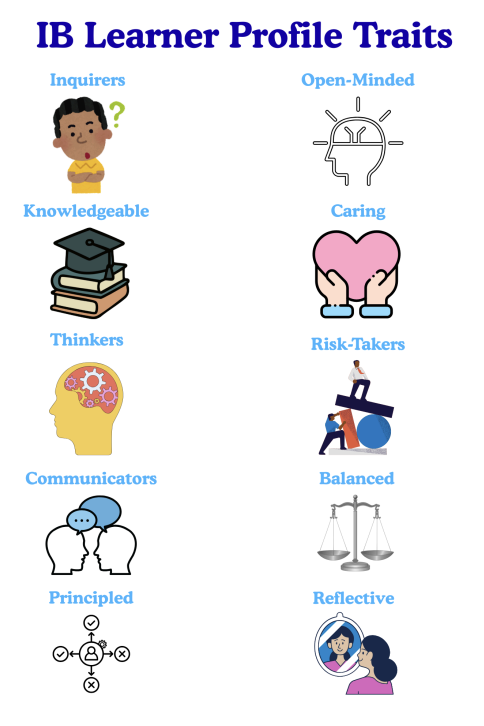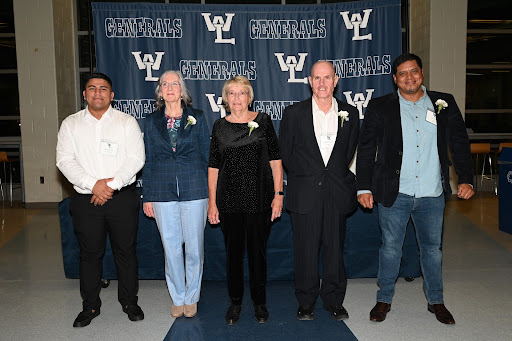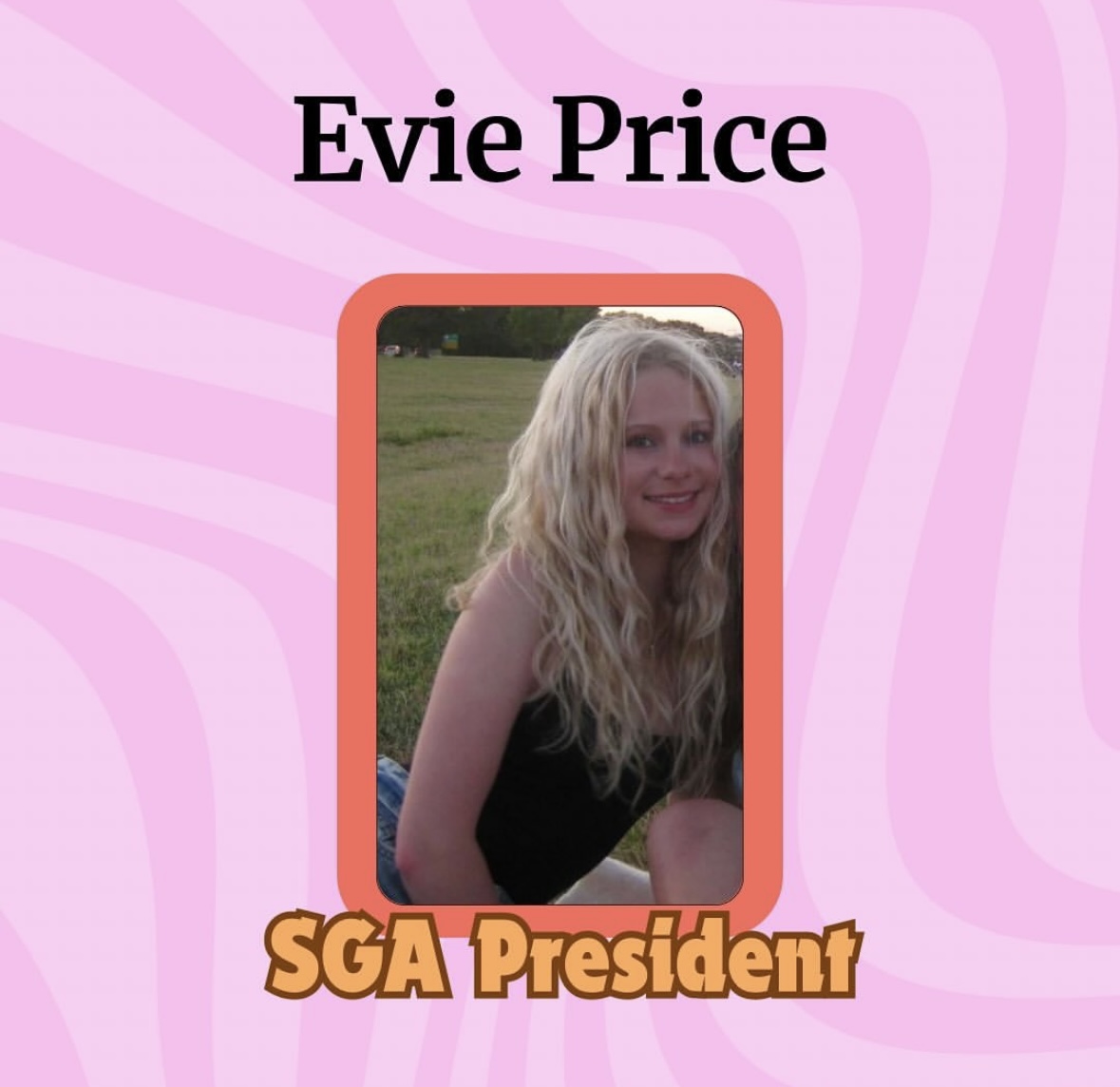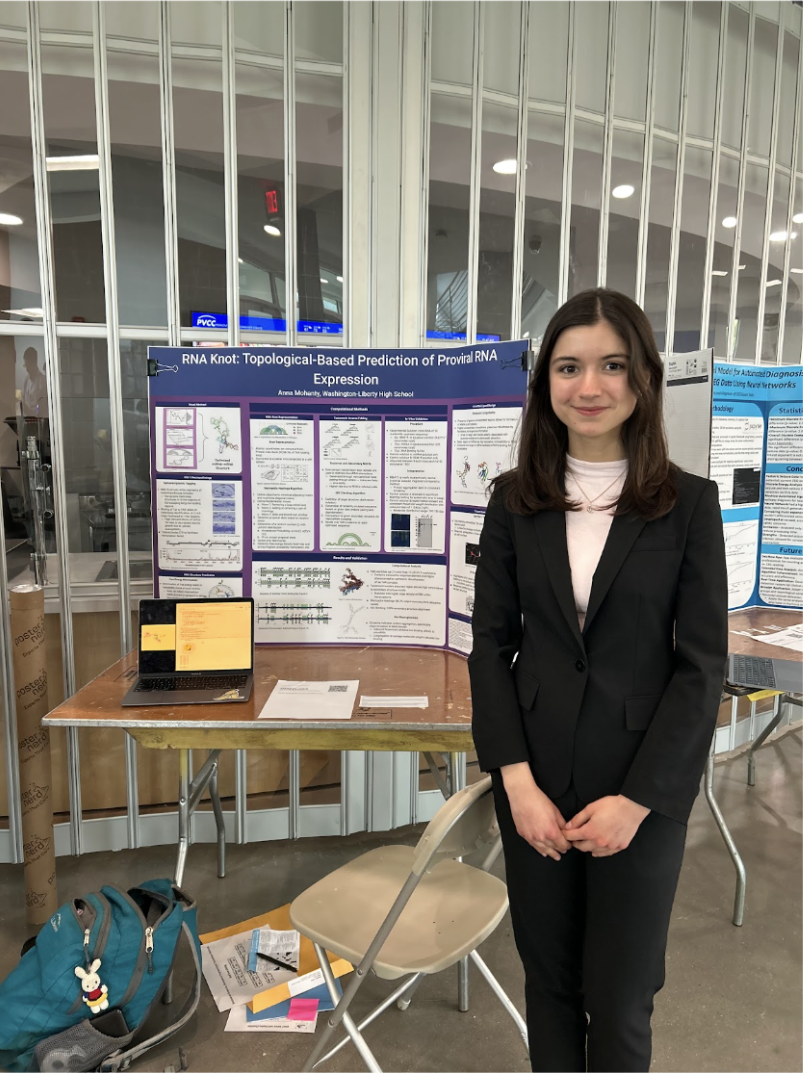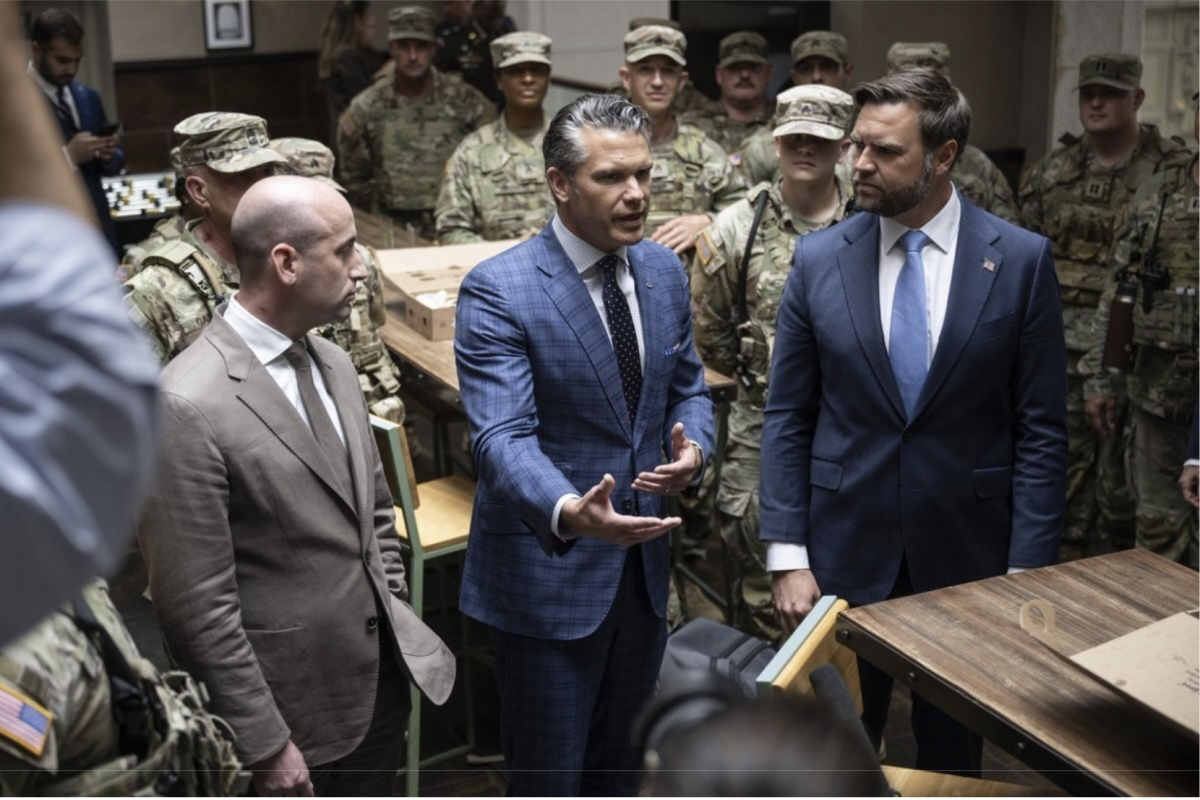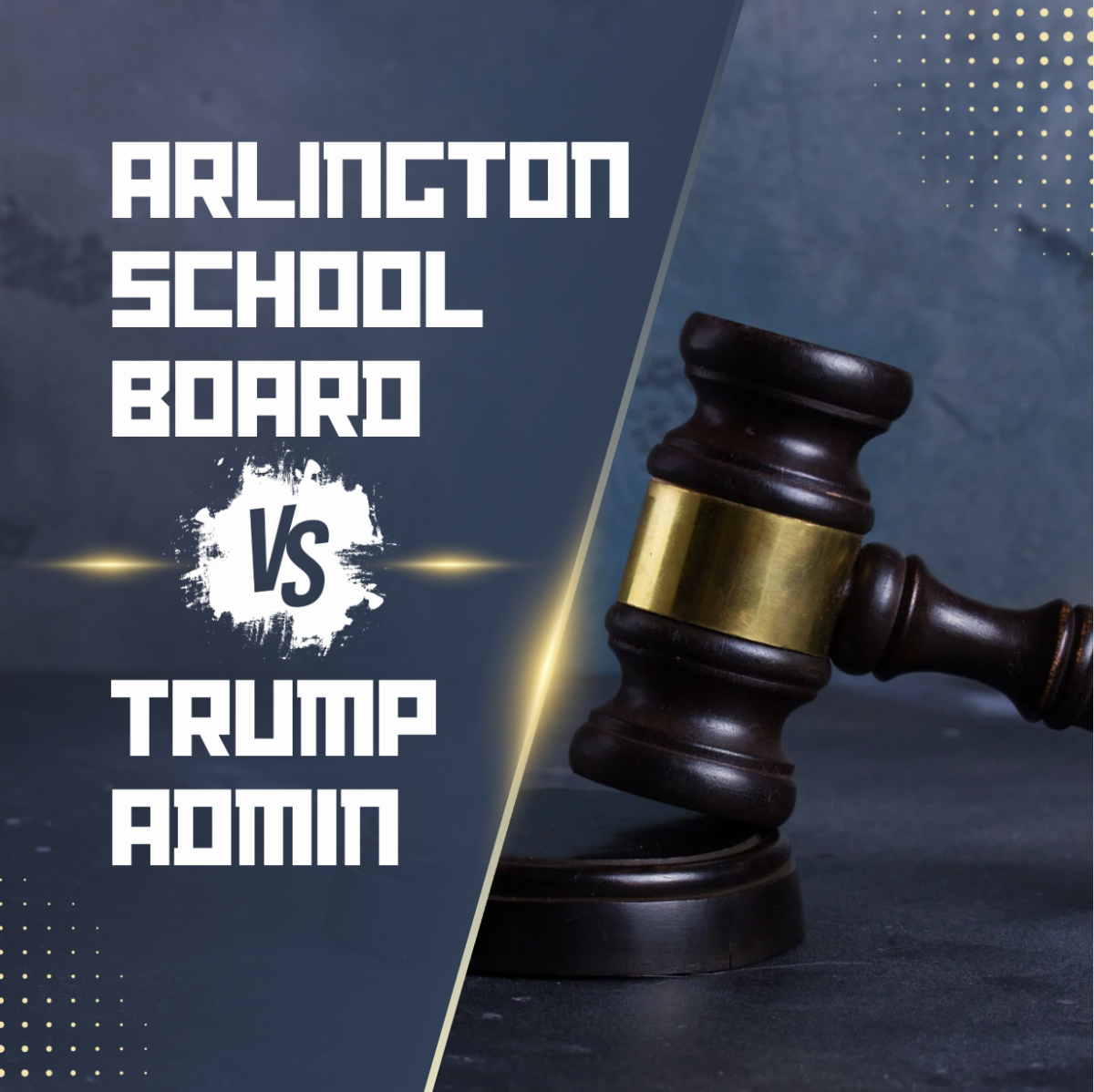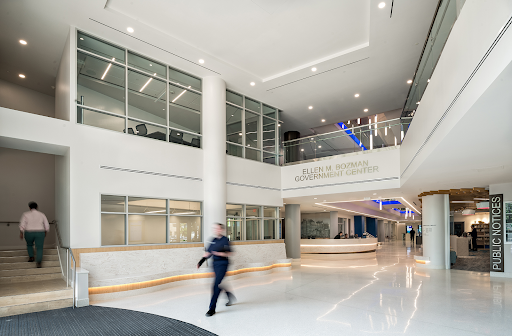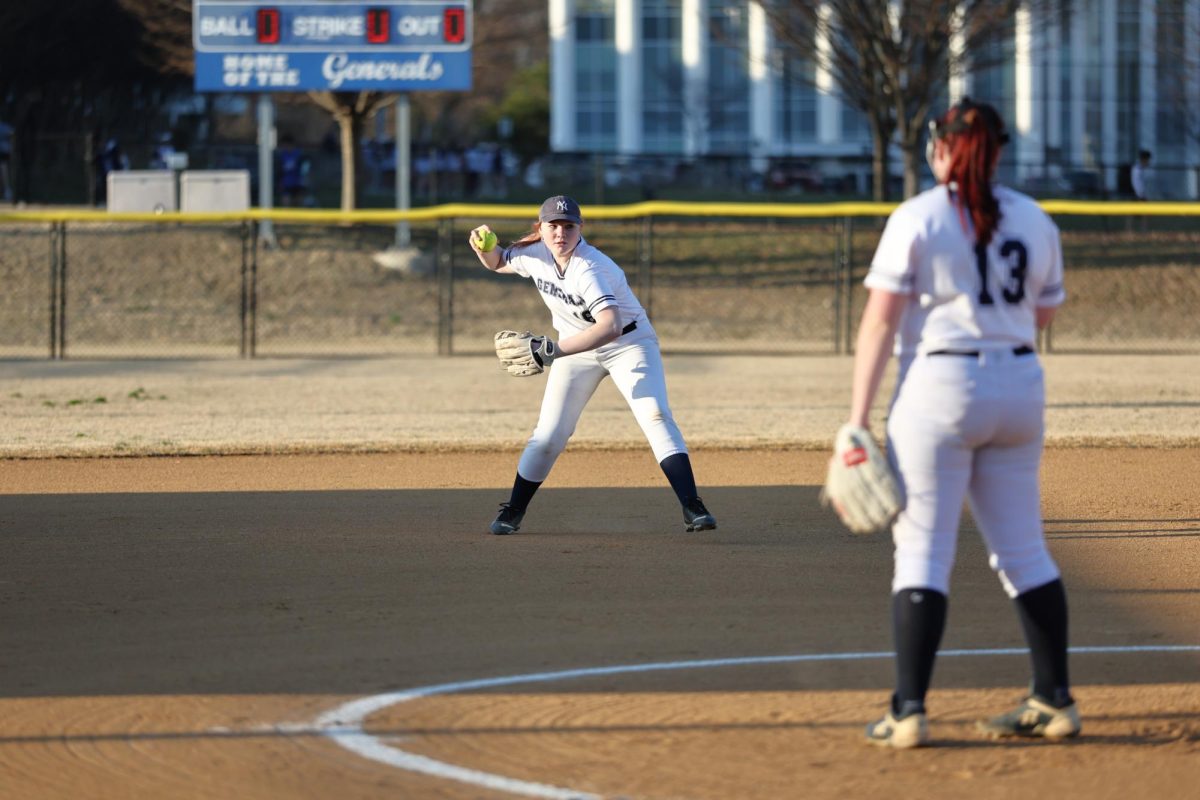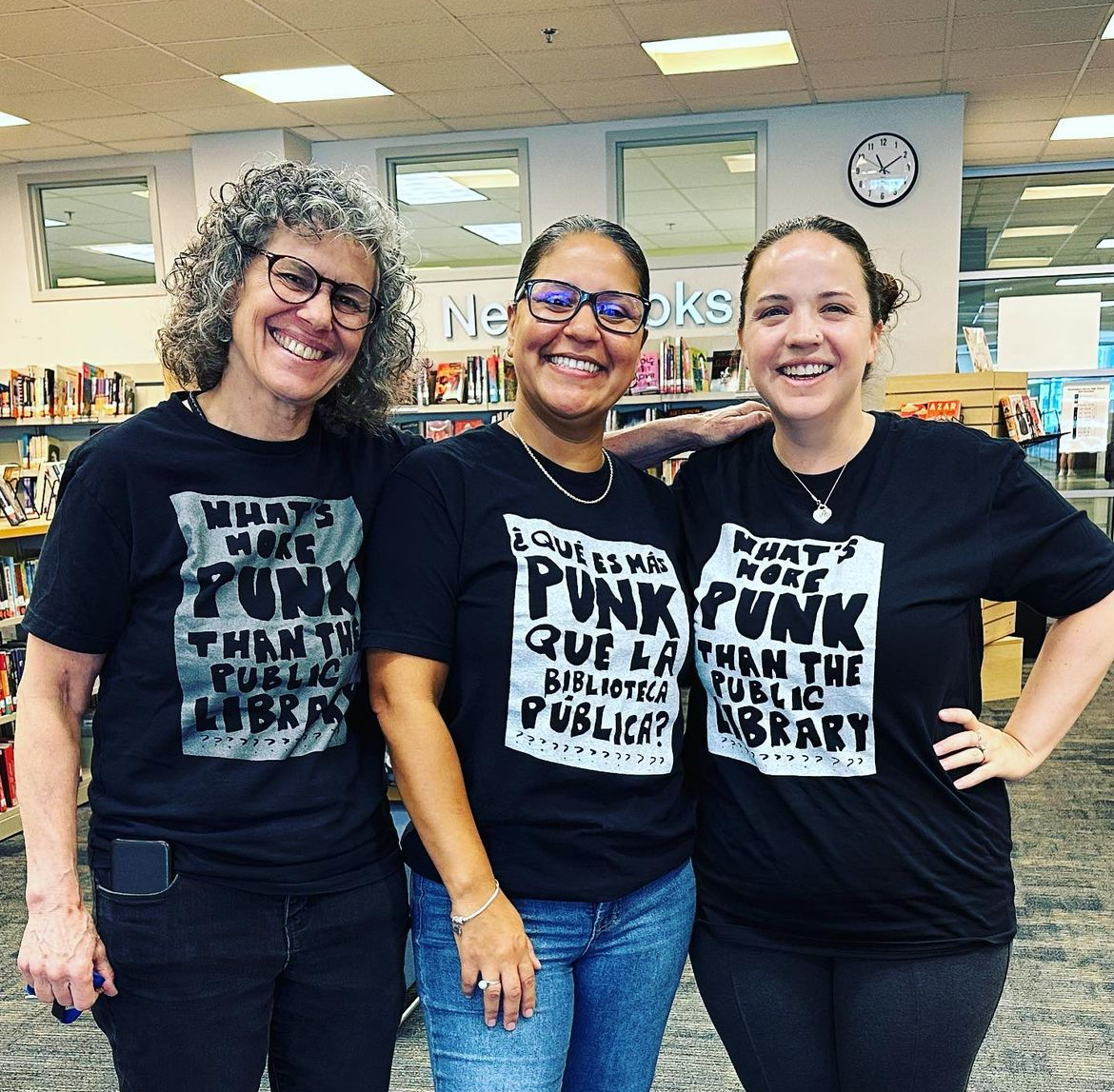Social Emotional Learning (SEL) is the most contentious of the new changes at the school this year, having generated significant student pushback. Many students and teachers alike are incredibly frustrated by the addition of Friday as a no-movement day.
“At first when I heard about [SEL], I was mostly just annoyed because it made both Monday and Friday no movement, when it used to be just Monday,” said Levi Opper, a senior at the school. He shared that he uses Generals Period (GP) to make up work, see teachers, or take tests and the changes to GP hamper his ability to do this.
The loss of a zero period for math, compounded with the shortened GP time, only adds to injury here.
“I see the merit [of SEL], why it’s important, but I just don’t think it’s something that everyone should be required to do,” Opper said. “It is just the way that we’re forced to do it. l feel like it’s something where if the resources were just available, then I think that that would be enough.”
He is not alone in his annoyance.
“I feel like it kind of came out of the blue that they were going to be increasing the amount that we were doing SEL,” said Elizabeth Adams, another senior at the school. “I just remember the first lesson this year. My GP is very small, we have like eight or nine people. The first lesson of the year was [to] say a fun fact about yourself. We all knew each other and we all just looked around and we were like, why are we doing this?”
Both Opper and Adams shared that they think SEL is important, but they disapprove of the current implementation of it in the school.
“We all have so many stressors in our lives already, and the SEL lessons aren’t focusing on the things that are actually important to us and actually stressing us out,” said Adams. “They’re instead just kind of focusing on broad, general things that honestly aren’t very helpful.”
Adams was part of a group of seniors who spoke at the school board meeting in September against the current implementation of SEL during GP. She had initially just planned on going to the meeting to watch and cheer on some of her friends who would be speaking, but while she was there, her friends convinced her to also talk.
“I just signed up pretty last minute,” Adams said. “I didn’t have a speech, I just typed out some notes on my phone. So I guess I was motivated by being there to support my friends and also because …I did agree with what [my friends were] doing.”
Adams shared that the board seemed very receptive to the student feedback she and her friends gave during the meeting.
“I think they just liked the idea that students were out there and speaking their minds,” Adams said.
At the meeting, the students brought up the results of a Google form students filled out about SEL that was posted on the WL End SEL Instagram account. The account was created by students to voice their opposition to changes in the implementation of SEL this school year.
“[The Google form] was in the bio and over 200 people clicked on it, responded to, and gave their thoughts, [voting] on whether or not they thought SEL was effective,” Adams said.
She explained that the form got way more responses than anyone expected, and is perhaps indicative of how upset students are about this.
“I’ve not heard anybody saying that it was a good idea,” said Opper about the new SEL changes. “I’ve talked to teachers, I’ve talked to other students. Nobody that I’ve talked to thinks that it’s a necessary thing. I’m sure, … there’s gotta be some reason they put it in.”
Opper joined the SEL focus group to learn more about why we have it and to provide feedback on it.
“I’d seen some other people complaining about how SEL takes away the social time at GP, and I want to make sure that’s not the full basis of what students are saying against SEL because GP is not just a time for being social,” Opper said. He shared that certain academic-focused things can only be done during GP and he wanted to ensure that perspective was shared.
He noticed that most students at the first focus group meeting were upperclassmen.
“[The focus group] was mostly seniors,… a couple juniors, very few sophomores and one freshman,” Opper said.
They meet every Friday during GP, and the group is led by ninth-grade assistant principal Ms. Hsu. When Opper first signed up, he did not realize focus group meetings were going to be a weekly occurrence.
“I came because I just wanted to speak my mind about SEL and give my honest feedback,” Opper said. “We started talking about SEL in the last two minutes of GP, the first like 33 [minutes] or so it was icebreakers… I just have other stuff I needed to do during that GP, but I decided to go, and it was just a complete waste of my time.”
He explained that he was disappointed with the first meeting and never even got a chance to share his feedback about SEL.
“There’s another meeting on Friday, and I just don’t think it’s worth my time,” Opper said. “I might just give my spot to someone else.”
Opper shared that the atmosphere at the first meeting was much friendlier than he thought and was not a constructive criticism or feedback session like he was expecting.
The creation of this group was a direct response to student feedback about SEL by the administrators at the school.
“I’m hearing from 11th and 12th graders that this is not working out,” Ms. Hsu said, “so after consultation with Principal Hall, we decided to run a focus group.”
She explained that the focus group meetings regularly have 20 to 25 students, but she is still looking for more involvement from freshmen to include their voices in the discussions. Her goal with the SEL focus group is to find an implementation of SEL that works better for everyone.
“My goal is to listen to these voices, whether positive or negative, synthesize [this] feedback, and work with our focus group to move forward towards a more meaningful integration of SEL at W-L.”
Ms. Hsu described the group as brainstorming and problem-solving ways to make SEL not just something the school does because it is mandatory but something that is genuinely beneficial. Although it is too early in the year to say for sure, she hopes to be able to continue the group meetings for the rest of the year.
“This is not going to work if student voices are not included,” said Ms. Hsu. “The lessons were created in the summer without any student feedback. Look what happened. [T]his is not a criticism on anyone, or APS. They did the best they could, … but now it is time to include some student voices.”
The Arlington School Board is actively involved in incorporating this student feedback and supporting schools in adapting the implementation of SEL into something more valuable. To this end, the county-level High School SEL Coordinator Jennifer Gross is helping run W-L’s focus group alongside Ms. Hsu. Wakefield is also undergoing the process of creating a focus group for their school.
“[S]tudents are now taking an active role in reviewing the upcoming schedule of lessons to make recommendations as to how they may be able to be more relevant to their needs and, as a result, have more of the desired impact,” said Carmen Mejia, the Deputy Clerk of the School Board and Communications Liaison, on behalf of Ms. Cristina Diaz-Torres, about the focus group. “APS very much wants to involve high school students in the creation and leading of the SEL curriculum within their school … and students at all high schools are strongly encouraged to connect with their school’s SEL leads to discuss how they can make these times as meaningful and beneficial to students as possible.”
Ms. Kyle Mortenson and Ms. Jeanine Osther, the SEL leads at the school, are given lessons and other resources from the county to assist them. Arlington Public Schools (APS) designs lessons using the Collaborative for Academic, Social, and Emotional Learning (CASEL) system.
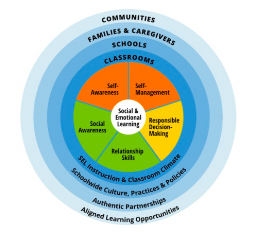
“It’s a national system that is used,” said Ms. Osther in regards to CASEL. “It is a nationally accredited program and they have the research to back up that this works.”
APS’s goal with SEL is to aid students in developing skills that will have long-lasting benefits for them.
“Research tells us that the benefits of SEL instruction include stronger academic achievement, mental wellness and resiliency, and positive school climates,” Mejia said. “We want our students to graduate with the skills they need to navigate their personal, social, academic, and professional experiences in healthy and positive ways.”
Most of the changes in SEL at the school this year were prompted by the Virginia Department of Education’s SEL guidance standards.
However, it was the school board’s decision to add explicit SEL during GP at the school as they did not want to cut away instructional time.
“I think [at] the high school level, when it comes to implementation, time is not our friend,” Ms. Hsu said, “[because] we don’t have a lot of time during the day to do explicit SEL. I’d like to see SEL being implemented and integrated in every class during the school day. As [a] matter of fact, there is already a lot of [SEL] that is embedded across [the] curriculum at W-L during the day.”
Ms. Osther explained that the initial implementation of SEL at the school was modeled off of successful programs in the elementary schools.
“Everybody’s intention of this is positive,” said Ms. Osther. “We just [need] to continue to figure out the kinks in it because we … just cannot at the high school level do the same things that they’re doing in elementary.”
Ms. Hsu explained that she supports SEL but agrees that there are issues with its implementation.
“I think we can all agree that SEL is important based on our survey from last year,” Ms. Hsu said. “Per our community survey, we also see the parents are asking for some intentional SEL support at school. I think the intention behind the APS mandate was a positive one.”
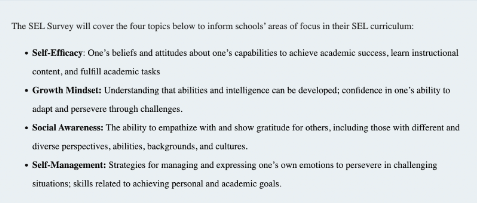
She also shared that she found a differentiation issue at the school with implementation.
“Right now, … a lot of the feedback is coming from 11th and 12th graders, but the ninth and 10th graders, they’re saying they actually like these lessons,” Ms. Hsu said. “So…another issue our APS leadership did not think about is scaffolding and differentiating. Right now we’re using a one size fits all model, and we are finding out that that doesn’t work for everyone.”
The school only has so much control over the matter, though, as many of the decisions are coming from higher up the chain, but Ms. Hsu and Ms. Osther are expecting that the second quarter will bring some meaningful changes to SEL lessons in regards to differentiation. They hope to provide different lessons for underclassmen and upperclassmen tailored to each group’s needs.
Ms. Osther also wants to give teachers choices they can pick between lessons so that they are comfortable with them and can select something meaningful for their students.
“At the end of the day, [the teachers are] going to know better than I do,” Ms. Osther said, about what works best for their classes. “I’m going to know what to give you for a lesson, I’m going to know how to speak to you about SEL, and to model it, … but it’s a waste of time because I don’t know the audience … For my position, I rely heavily on my educators because they know their audience.”
To that end, in addition to incorporating student feedback, Ms. Osther also wants to ensure teachers provide input on what they would like to see altered.
While no significant overhauls of the implementation are likely to occur this school year, the county is looking at connecting the third period with GP, which could facilitate SEL’s implementation.
“Right now our model is that students go to … a random GP teacher that they don’t have on their schedule,” said Ms. Hsu. “The benefit is that you get to know a staff [member] that is not giving you a grade [and] that you get to know a staff member outside of the formal setting. However, we’re finding out that it’s a little hard to build relationships that way.”
Ms. Osther stressed that as explicit SEL is new at the school, there will inevitably be room for growth.
“I’m just making sure that everyone’s collective voices [are] being heard,” Ms. Osther said. “Hopefully, there will be a change because I feel like if the student focus group is going on, and the teachers are saying what they would like to see, … and there’s a change [in] SEL, I just think that’s the most positive thing you could do.”



